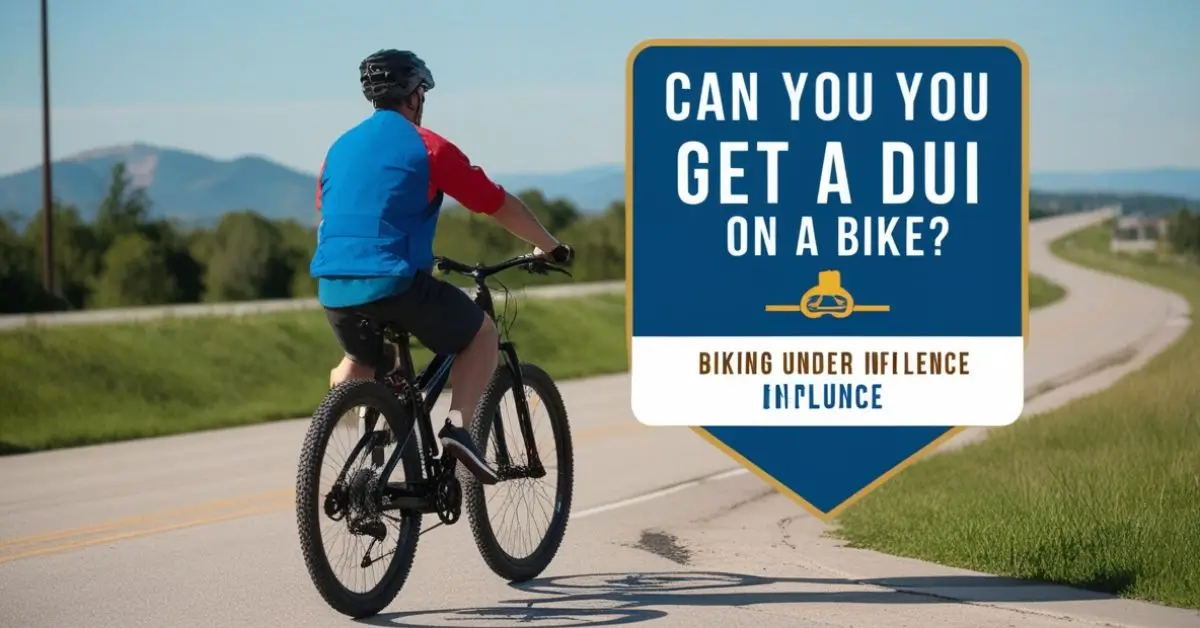When discussing DUI (Driving Under the Influence) laws, people often think of motor vehicles. However, the question arises: can you get a DUI on a bike? The answer varies by jurisdiction and is tied to how local laws define vehicles and impaired operation. This article delves into the legal landscape, potential penalties, and safety concerns surrounding biking under the influence.
Understanding DUI Laws and Their Application to Bicycles
In most regions, DUI laws are designed for motor vehicles, but some states and countries include bicycles under the broader term “vehicles.” This inclusion can expose cyclists to DUI charges, depending on how the law is structured in a specific location. Here are the primary considerations:
- Definition of “Vehicle”
In some states, bicycles are explicitly classified as vehicles, making them subject to the same rules as cars or motorcycles. States like Florida and Colorado treat bicycles as vehicles, meaning riding one while intoxicated can result in a DUI charge. Other states reserve the term “vehicle” for motorized forms of transportation, excluding bicycles from standard DUI laws. - Alternative Offenses
Even in places where bicycles are not classified as vehicles, cycling while impaired can lead to other charges, such as public intoxication, reckless endangerment, or disorderly conduct. These charges carry their own set of penalties, including fines and potential jail time. - Specialized Cycling Laws
Some jurisdictions have specific laws addressing cycling under the influence. For example, California imposes fines on cyclists caught riding under the influence, but the penalties are less severe than for motor vehicle DUIs.
States That Treat Bikes as Vehicles
In states where bicycles are legally considered vehicles, DUI laws apply equally to cyclists and motorists. This classification has significant implications:
- Florida: Bicyclists can be charged with a DUI for riding while intoxicated, facing penalties like license suspension, fines, or even jail time.
- Colorado: DUI laws for cyclists mirror those for drivers, with penalties such as jail time and community service.
In these states, the legal system views cycling while impaired as equally dangerous as driving, and offenders face consequences intended to deter risky behavior.
States That Exclude Bikes from DUI Laws
Some states only include motorized vehicles in their DUI statutes, excluding bicycles. However, this does not mean cyclists can ride while impaired without repercussions. Public intoxication or endangerment laws may still apply. For instance:
- Oklahoma: DUI laws focus on motorized vehicles, but public intoxication charges can be levied against cyclists who endanger themselves or others.
- Illinois: Cyclists cannot be charged with a DUI, but reckless behavior while intoxicated can result in charges like disorderly conduct.
Specialized Cycling DUI Laws
Certain jurisdictions address cycling under the influence separately. These laws are often less punitive but aim to discourage dangerous behavior. For example:
- California: Cyclists face fines but no jail time for riding under the influence.
- Washington, D.C.: Cyclists are subject to many of the same traffic laws as motorists, including DUI regulations, because bicycles are defined as vehicles.
Legal Penalties for Biking Under the Influence
The penalties for cycling while intoxicated depend on the jurisdiction and whether the offense falls under DUI laws or alternative statutes. Here’s a breakdown of potential consequences:
| Penalty Type | Description |
|---|---|
| Fines | Ranging from $250 for cycling-specific offenses to several thousand dollars for full DUI charges. |
| Jail Time | Rare but possible, especially in states with strict DUI laws for cyclists. |
| License Suspension | Applicable in some states even if the offense occurs on a bicycle. |
| Community Service | Often imposed as part of sentencing, particularly for first-time offenders. |
| Criminal Record | A DUI conviction can result in a criminal record, impacting employment and housing opportunities. |
Even in jurisdictions where the penalties for cycling DUIs are less severe than those for motor vehicle DUIs, they can still have lasting effects on a person’s life.
Why Cycling Under the Influence is Dangerous
Riding a bike under the influence is risky not only from a legal standpoint but also because of the heightened danger to oneself and others. Impairment reduces reaction times, balance, and judgment, making cyclists more likely to:
- Swerve into traffic, increasing the likelihood of collisions.
- Fail to obey traffic signals or signs, putting pedestrians and other road users at risk.
- Be involved in single-vehicle accidents, such as falling or crashing into stationary objects.
Cyclists are particularly vulnerable on the road, as they lack the physical protection offered by cars. An impaired cyclist’s chances of injury or fatality in an accident are significantly higher.
Public Intoxication and Alternative Charges
For states where DUI laws do not apply to bicycles, alternative charges may still apply. Public intoxication laws are commonly enforced when impaired cyclists pose a threat to public safety. For instance:
- Reckless Endangerment: Charges may apply if a cyclist’s behavior endangers pedestrians or drivers.
- Disorderly Conduct: Often used for cyclists creating public disturbances while intoxicated.
These charges, while less severe than DUIs, can still result in fines, community service, or short jail sentences.
How to Avoid Legal and Safety Issues
To avoid the risks and consequences of cycling under the influence, consider the following:
- Plan Ahead: Arrange for alternate transportation, such as a rideshare or taxi, if you plan to drink.
- Walk Instead: If no transportation options are available, walking is safer than cycling while impaired.
- Know Local Laws: Familiarize yourself with the cycling and DUI regulations in your area to understand your legal responsibilities.
A Safer Alternative: Advocacy for Sobriety on the Road
Organizations promoting road safety stress the importance of avoiding impaired operation of any vehicle, motorized or not. Public campaigns and educational programs aim to raise awareness about the dangers of cycling under the influence.
Conclusion
Can you get a DUI on a bike? In many places, the answer is yes. Even where DUI laws do not explicitly apply to bicycles, alternative legal consequences may follow. Beyond the legal aspects, cycling while impaired endangers not just the cyclist but everyone sharing the road. Understanding the laws in your area and making responsible choices can help you stay safe and avoid serious repercussions.
For a more visual explanation, check out this video on DUI laws for cyclists to gain a deeper understanding of the topic.












